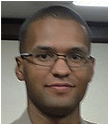A federal jury has awarded the family of Nathanael Pickett, Jr. $33.5 million based on its collective conclusion that the 29-year-old man’s civil rights were violated when a San Bernardino County sheriff’s department deputy fatally shot him during a 2015 encounter at the El Rancho Motel in Barstow. The jury verdict repudiated a finding by the district attorney’s office that the homicide was justified.
Nathanael Pickett II, was shot and killed by San Bernardino County Sheriff’s Deputy Kyle Woods on November 19, 2015. Based on deputy Woods’ statements and his police report, the sheriff’s office maintained the deputy’s use of lethal force was reasonable. Woods, according to a sheriff’s department news release at the time, suffered multiple injuries, including broken bones. Furthermore, according to the sheriff’s department, Pickettt had a history of resisting arrest, having been twice convicted, in 2006 and again in 2011, of “obstructing an executive officer,” such that he merited the use of deadly force against him. In 2012, Pickett was sentenced to three years of conditional and revocable release stemming from the 2006 misdemeanor obstructing an executive officer arrest and was simultaneously sentenced to three years of supervised probation following a no contest plea to two counts of felony obstructing an executive officer and a felony false impersonation charge stemming from a 2011 arrest.
The San Bernardino County District Attorney’s Office released a report and finding in November 2016 which categorized the shooting as justified. Prosecutors said that Woods believed Pickett was under the influence of a controlled substance and that Pickett had resisted arrest and punched the deputy, fracturing his nasal bone and knocking his head on cement. According to the district attorney’s office, Woods and a civilian reserve deputy accompanying him were justified in their action because they believed, mistakenly it would later be determined, that Pickett was trespassing on the El Rancho Motel grounds. Killing Pickett was further justified, according to the district attorney’s office, given the results of a toxicology report showing Pickett had marijuana in his system and a blood-alcohol level of 0.01.
In defending against the suit, the county maintained the shooting was a justified use of deadly force in which the deceased tempted fate through his own behavior. A video of the incident along with eyewitness testimony, however, led the jury to a different conclusion.
Woods and the citizen volunteer were on duty the evening in question when, according to their account, they witnessed at approximately 9:07 p.m., a man, subsequently identified as Pickett, jumping over a fence at the El Rancho Motel in Barstow.
When the officers moved to question Pickett, according to the department, he furnished the pair with a “false name and became uncooperative. As the deputy attempted to handcuff the suspect, he attempted to run and a fight between the two broke out. Pickett struck the deputy numerous times in the face and refused to comply with the repeated verbal commands to stop hitting him and move away. The deputy fired his weapon, striking the subject, at which time the assault ceased.”
Nevertheless, witnesses say it was Woods who was punching Pickett rather than the other way around. Nor did video footage captured by a security camera at the El Rancho Motel, where Pickett had been living, bear out the department’s and Woods’ version of events. Woods activated an audio recorder on his uniform belt. At various times during the encounter Pickett can be heard asking Woods, “What’s the problem?” The video depicts Woods talking to Pickett, then Pickett running from the deputy, who pursues Pickett off camera. A few minutes later, Pickett reappears on video, running down the motel corridor and being chased by Woods. Pickett trips and falls. Woods, seen on the video from behind, at that point appears to be pointing his gun at Pickett. Pickett scoots back, away from the approaching deputy, but does not appear to be hitting or in any way striking Woods. A single flash of gunfire briefly flickers and Pickett is then seen prone on the ground. At no point is Pickett seen striking Woods. Woods, however, can be seen punching Pickett repeatedly. At one point, the reserve deputy can be seen assisting Woods.
Nathanael Pickett I, represented by attorney Bob Conaway, originally filed suit against the county, the sheriff’s department and Woods in state court on November 1, 2016 over the death of his son. Pickett’s mother, Dominique Archibald, represented by attorneys Dale Galippo, Sharon Bruner and Jim Terrell, filed suit in U.S. Federal Court in Riverside on May 31, 2016.
A synthesis of the two lawsuits relates that Pickett suffered from an undiagnosed mental illness, most likely schizophrenia or bipolar disorder, while alleging Pickett was subjected to unjustifiably brutal treatment at the hands of Woods, who “unlawfully, improperly and maliciously shot” and then reholstered his gun, and with the reserve deputy punched and kicked Pickett as he lay on the doorstep of death. Woods evinced deliberate indifference to Pickett’s medical needs, according to the suits. Evidence presented by the attorneys for the senior Pickett and his ex-wife showed that the shooting of their son occurred at approximately 9:15-9:16 pm; the paramedics, who were less than two miles away, were notified at 9:20 p.m. and arrived at 9:25 p.m. But when they arrived, the paramedics were “staged out of the area” and given access only after being escorted in, so the fire paramedic unit was not cleared into the area until 9:58 p.m. This represented a “furtherance of the care denial,” according to the suit filed in state court. The suits propounded that the Barstow Fire Protection District was given a delayed notice of the incident while the sheriff’s officers at the scene restricted the paramedics’ access to Pickett, such that when they arrived, Pickett had expired. Conaway presented evidence that Pickett’s body had been moved to a location close to the fence to support a falsified set of scenarios to justify the shooting. Conaway maintained, and the jury apparently concurred, that the version the department finally settled upon was demonstrably a fabrication.
The case went to trial on March 6. After all of the evidence and testimony was presented, the eight-member jury deliberated for less than three hours before unanimously awarding the parents of Nathaniel Harris Pickett Jr. $15.5 million in compensatory damages and $18 million in punitive damages.
The county has indicated it will appeal the verdict and the award.
-Mark Gutglueck


